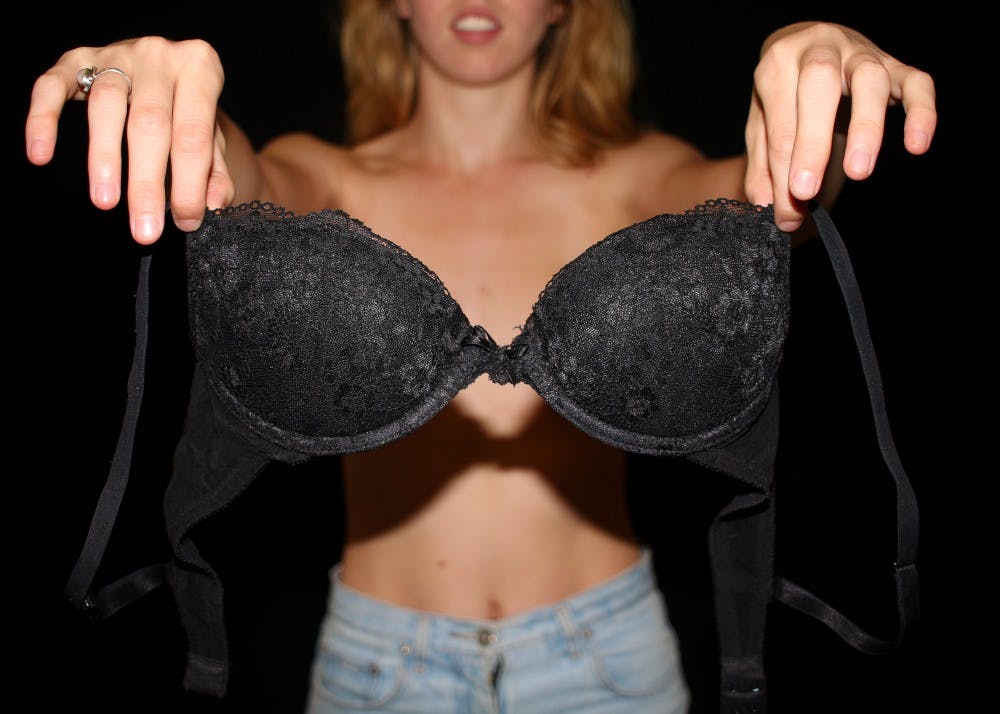Not every girl wants to stride across campus with tight bra straps carving into her shoulders and rib cage. IU senior Morgan Farrell enjoys the freedom since she went braless about two years ago.
She said physical comfort was the main reason she stopped wearing them.
“It’s just me living my life and doing what I have to do,” Farrell said. “If a woman does not want to wear something, she doesn’t have to, as long as she’s not being indecent.”
Going braless has been an unceasing trend since the women’s liberation movements in the 1970s when bra-burning seemingly became a feminism banner.
Though women have long been told not to expose their bodies, nowadays they are not repressed to wear a bra, and not wearing a bra is not necessarily associated with any political statement, said Jennifer Maher, IU gender studies professor.
“It’s not a feminist tenet,” she said. “It’s not that people who wear a bra aren’t feminists.”
In 1968, hundreds of feminists and civil right advocates gathered at the Miss America 1969 contest in Atlantic City, New Jersey, and protested by tossing token feminine products such as bras, makeup and corsets into a “Freedom Trash Can.”
Maher said the Miss America protest was not a demonstration against the bras and the makeup themselves, instead it was against the idea that women had to wear those things in order to be accepted.
“We do things that allow us to make our way in the world,” she said. “There’s nothing wrong with looking feminine at all. The problem is that if it’s mandated, people who don’t do that have a harder time.”
The design of female undergarments is always tied with the clothes we wear on the outside, said Kelly Richardson, the curator of Sage Fashion Collection at IU.
The image of female body shape has been constantly changing. Female undergarments such as corsets and girdles were styled to conform to a particular shape popular at the time, and they were much more rigid and uncomfortable than the modern bras women are wearing.
Nowadays fashion has become more diverse and many varying forms of the female body coexist with each other. Women like Farrell are comfortable with their bodies and are less concerned with how other people think.
At the end of the day, it’s everyone’s choice, Farrell said.
“We’re all about letting women be women, and not having our actions be sexualized constantly and not letting our bodies be objectified for no reason,” she said.
Maher said the association of breasts with sexuality is not necessarily wrong.
“They’re sexualized because they are sexual,” she said.
She said because we live in a patriarchy, women’s breasts are sexualized in a way that men’s breasts aren’t. A lot of people are threatened by female sexuality and don’t feel comfortable with that.
Farrell said women in general are feeling more comfortable not wearing a bra, and it’s showing a shift in the way women think about the way they dress themselves. The choices they make are more based off of what they want, instead of the social norms.
“We’re constantly in the world on a tightrope between what we want to do and what society expects from us in order to get ahead,” Maher said. “Life is long, and it’s hard and tiring sometimes to constantly be having to make a statement through your physical appearance.”






